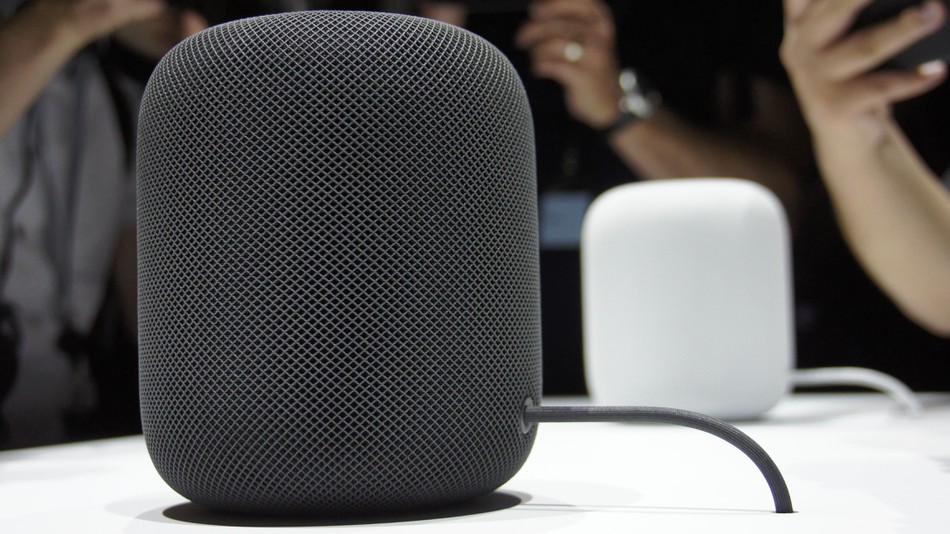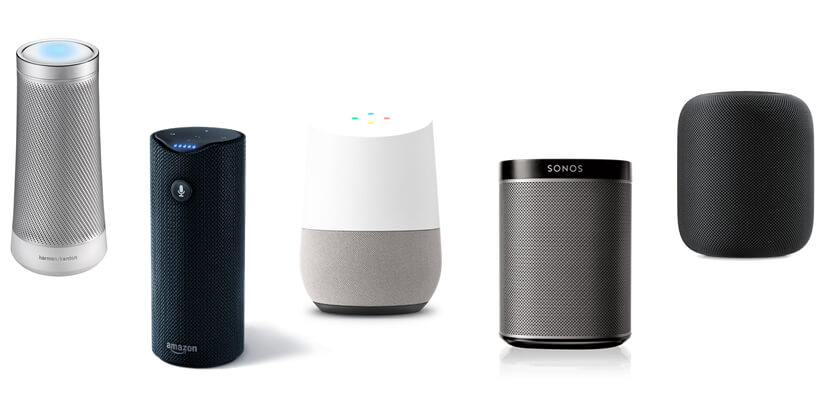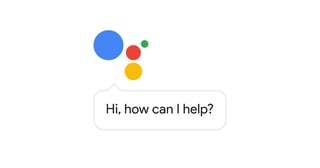Share this
The rise of the smart home speakers - What can we expect?
by Robin Laurens on Feb 13, 2018 11:53:09 AM
After Google and Amazon, it was now time for Apple to enter the smart speaker market with the release of their own device; the Apple HomePod. The internet is already full of reviews and comparison articles. The general opinion? Siri is not able yet to answer as many queries as her more experienced brothers and sisters (Alexa and Google Assistant) do, but for a first version, it's working quite well. And not to forget, the sound quality is excellent.

A changing interaction with technology
The involvement of all today's big tech players in the smart speaker market is significant. It predicts that soon everyone will have a personal assistant at home, informing its owners about the weather outside, arranging the temperature and light at home and shopping our daily groceries. In the end, smart assistants will be involved in our life, just like smartphones are now.
An interesting development, because the technology will change the way we will interact with it;
'Today, we use our keyboards, mice, and touchscreens to interact with computers, but in the future, we’ll simply rely on our voice, gestures, or even our thoughts.'
What does this mean? A few things people predict is that we will be less distracted and will finally be able to focus again on the conversations we are having, the chores we are doing etc. It will also save us time and will give us the possibility to live more remotely.
In our last blog about smart assistants, we summed up all the advantages users experience when using their home device. You can find it here. 
Is it really that big?
At this moment, The United States is ahead of the rest of the world when it comes to smart home speakers, with already one in six persons owning one, but the European market is rapidly increasing as well. The reason for this high number is partly because the devices can be quite affordable. For around $49 you already have the cheapest options; the Google Home Mini and the Amazon Echo Dot. For the next year a January Canalys report estimated that 56.3 million smart speakers will be sold, making it the fastest-growing consumer technology on the market.
According to research, 64% of all owners of a smart speaker say that they couldn’t go back to a life without it. The smart speaker is replacing their radio, and reduces their time spent on television and even on their smartphone. This means that there are fewer screens involved in the users' daily life and more time for other things to do.
Future smart homes and lives
The last CES in Las Vegas showed us one thing; the time of smartphones stealing the show at prominent tech events is over, it's now all about voice assistants and the integrations of them in our daily life. Smart speakers are only a part of this shift, like cars, televisions, fridges and even toilets have built-in smart solutions now, with the underlying idea of them working altogether.
The next big question arises when we see this shift in consumer behaviour towards technology, how can businesses respond to this?
We'll try to find an answer to this in the upcoming weeks.

For the first time, Google was very visible at the last CES (Consumer Electronics Show) in Las Vegas. Their goal? Promoting Google Assistant and showing Amazon they've got some real competition. We wrote a blog about it; you can find it here:
Share this
- April 2025 (2)
- February 2025 (2)
- January 2025 (3)
- December 2024 (1)
- November 2024 (5)
- October 2024 (2)
- September 2024 (1)
- August 2024 (1)
- July 2024 (4)
- June 2024 (2)
- May 2024 (1)
- April 2024 (4)
- March 2024 (2)
- February 2024 (2)
- January 2024 (4)
- December 2023 (1)
- November 2023 (4)
- October 2023 (4)
- September 2023 (4)
- June 2023 (2)
- May 2023 (2)
- April 2023 (1)
- March 2023 (1)
- January 2023 (4)
- December 2022 (3)
- November 2022 (5)
- October 2022 (3)
- July 2022 (1)
- May 2022 (2)
- April 2022 (2)
- March 2022 (5)
- February 2022 (3)
- January 2022 (5)
- December 2021 (5)
- November 2021 (4)
- October 2021 (2)
- September 2021 (2)
- August 2021 (3)
- July 2021 (4)
- May 2021 (2)
- April 2021 (2)
- February 2021 (2)
- January 2021 (1)
- December 2020 (1)
- October 2020 (2)
- September 2020 (1)
- August 2020 (2)
- July 2020 (2)
- June 2020 (1)
- March 2020 (2)
- February 2020 (1)
- January 2020 (1)
- December 2019 (1)
- November 2019 (3)
- October 2019 (2)
- September 2019 (3)
- August 2019 (2)
- July 2019 (3)
- June 2019 (5)
- May 2019 (2)
- April 2019 (4)
- March 2019 (2)
- February 2019 (2)
- January 2019 (4)
- December 2018 (2)
- November 2018 (1)
- October 2018 (1)
- September 2018 (2)
- August 2018 (3)
- July 2018 (3)
- May 2018 (2)
- April 2018 (4)
- March 2018 (5)
- February 2018 (2)
- January 2018 (3)
- November 2017 (2)
- October 2017 (2)



